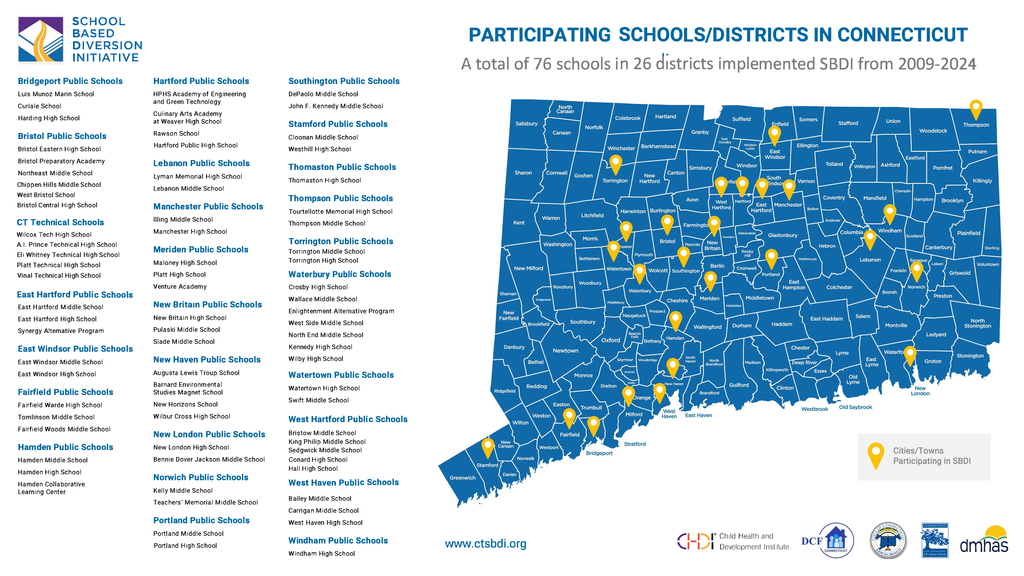CHDI and Connecticut schools testify in support of funding for School-Based Diversion Initiative

CHDI's President and CEO Jeff Vanderploeg, PhD testified at the Appropriations Committee public hearing on February 20, 2025, urging the committee to maintain funding for the Connecticut School-Based Diversion Initiative (SBDI) in the upcoming biennial budget. SBDI is a school-level initiative designed to prevent in-school arrests and reduce out-of-school suspensions and expulsions for youth experiencing emotional or behavioral health challenges.
Vanderploeg shared data on the program's strong outcomes, including reducing juvenile court referrals by an average of 25%, keeping more students in the classroom by reducing exclusionary discipline practices such as suspensions, and connecting more students to behavioral health services. He also explained that by reducing involvement in the juvenile justice system, SBDI is a cost-effective investment for the state.
"SBDI was designed to address the cost of arrest, juvenile justice involvement, and incarceration. And [it] is delivering a strong return on investment for Connecticut taxpayers and students."
He also specifically requested that the legislature restore full funding for SBDI under its own separate line item, pointing out that the Governor's proposed budget "bundles SBDI with other excellent, but very different programs under a 'Student Support Services' line, and imposes a 13% cut to those programs." He added that this approach would reduce the effectiveness of all of the bundled programs, harming schools and students.
CHDI was one of the lead developers of SBDI and serves as the initiative's Coordinating Center. Since 2009, we have partnered with 76 schools in 26 districts across Connecticut to help schools train staff, build connections with youth crisis services and other community-based service providers, update discipline policies, continually evaluate the program's implementation and outcomes, and more.
Many of the schools and districts participating in SBDI - including New Britain, Bristol, Windsor Locks, and West Hartford - also submitted testimony about the impact of the program on their students, staff, and communities.
Swipe below to read testimony excerpts from participating SBDI schools:
What Connecticut Schools Say About SBDI
As of 2024, 76 schools in 26 districts around Connecticut have participated in SBDI. Additional schools and districts have expressed interest in participating next year if funding allows.
